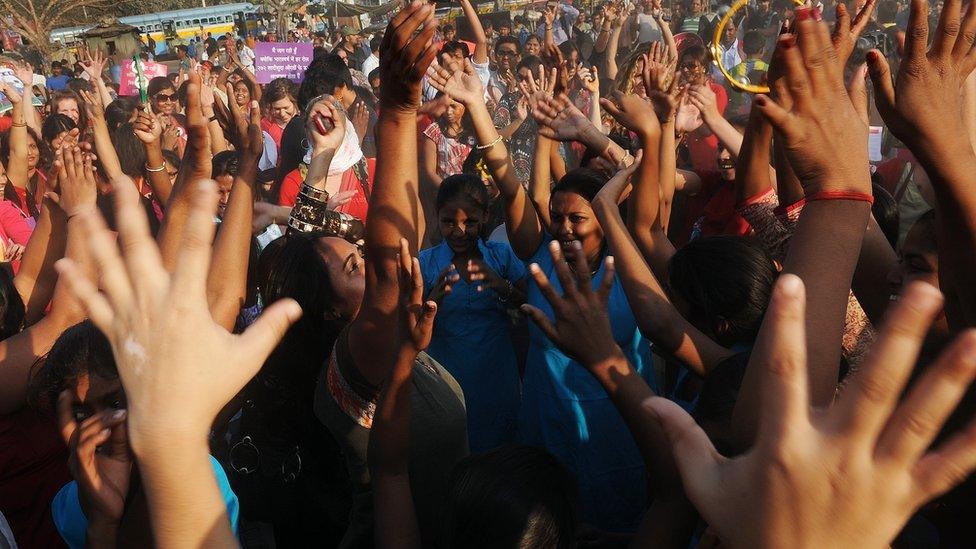Hyderabad rape suspect found dead: Is it murder or suicide?
- Published
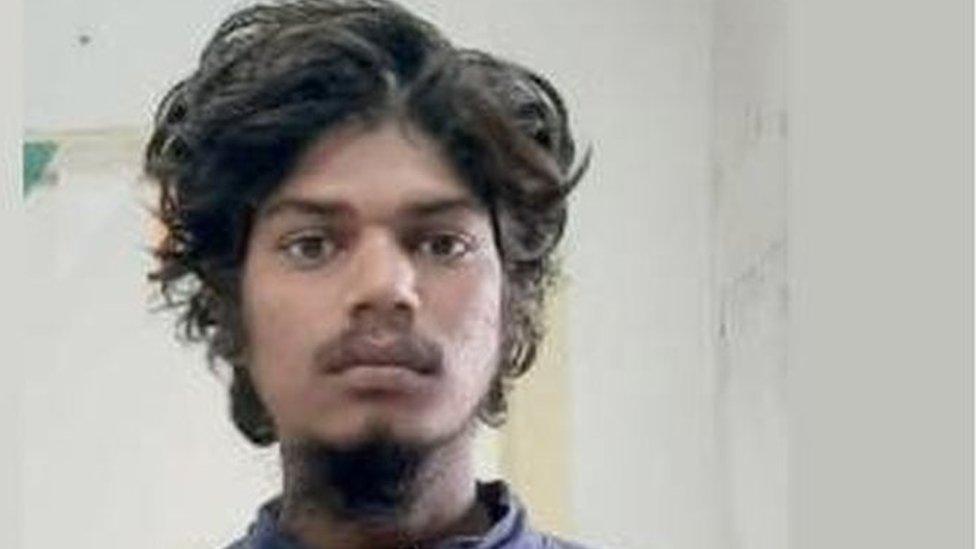
Police say Pallakonda Raju's death is "a clear case of suicide"
When the body of a child-rape suspect was found on railway tracks in the southern Indian state of Telangana, police said the man had killed himself by jumping in front of a train. But the 30-year-old suspect's family and some rights activists have accused the police of killing him in a "fake encounter".
The six-year-old girl had gone missing from her home last week. Her body was found a few hours later in the house of the suspect, who was her neighbour. A post-mortem confirmed sexual assault and death due to strangulation.
The crime led to huge protests in the state, with politicians, Telugu cinema actors and citizens taking to streets to demand justice for the child. There was also outrage on social media with many calling for the death penalty for her attacker.
The home of the suspect in the state capital, Hyderabad, was vandalised by a mob which threw out his belongings onto the street. Many called for the killing of the 30-year-old man in an "encounter" - a term used to describe extrajudicial killings.
In India, there's often significant public support for vigilante-style killings by police, especially in cases of rapes involving exceptional brutality or where victims are young children. With tens of thousands of rapes reported every year, many say they are frustrated by the slow pace of the judicial system. Courts can take years, even decades, to deliver justice.
Police had released the rape suspect's photograph, external earlier this week and announced a reward of one million rupees ($13,611; £9,872) for any information that would lead to his capture.
On Thursday, a police official told BBC Telugu that Pallakonda Raju's body had been found and that it looked to be "a clear case of suicide". He said that tattoos on the dead man's arms had helped identify him.
A senior police official told reporters that a railway employee had seen Raju walking on the tracks and tried to save him, before he was hit by a train.
But many have questioned the police version of events, accusing them of taking him into custody, killing him, and staging a suicide.
Raju's wife told reporters that on Thursday morning she received a call from the police asking her to go to the station to meet her husband. Many also pointed out that on Sunday, state minister KT Ramarao had tweeted that Raju was arrested "within hours" of the crime, but later retracted his tweet to say that the police were still looking for the suspect.
Two days before Raju's body was found, state Labour Minister Malla Reddy boasted that "we will catch the rapist and murderer, and encounter him".
Prof Kalpana Kannabiran, sociologist and lawyer in Hyderabad, told the BBC "the onus is on the police to prove that this was not a case of false encounter".
This is not the first time that police in Hyderabad have been accused of dispensing instant justice in a case of rape. In December 2019, city police shot dead four men suspected of raping and killing a 27-year-old female vet.
The men, who were in police custody, were taken back to the crime scene where they were killed.
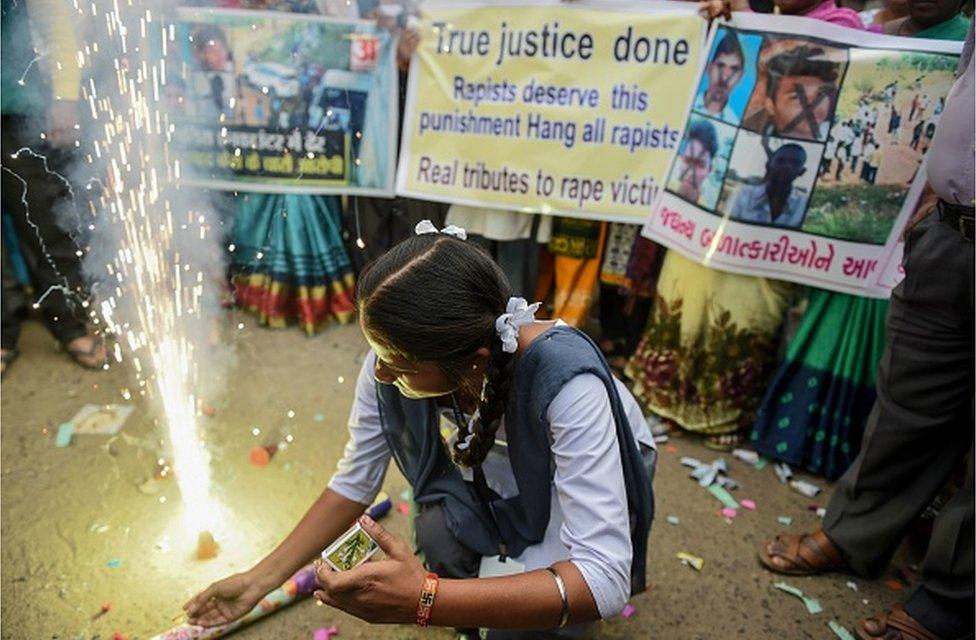
The killings of four rape suspects in December 2019 were celebrated across India
Police said the suspects were shot when they tried to snatch officers' guns and escape, but human rights groups said these were extrajudicial killings. A committee set up by India's Supreme Court is investigating the circumstances leading to their deaths.
The killings were celebrated in India, with people setting off firecrackers and distributing sweets. The Hyderabad police were hailed as heroes and senior police officials were offered floral garlands.
"You cannot stop rape by turning the streets into the killing fields," said Prof Kannabiran. "In December 2019, police made an example by shooting dead four men suspected of rape, but did it stop sexual assaults?"
The idea of using "blind retribution and impunity" as justice for women was "terribly misplaced", she said.
"Even if you say justice in cases of rape and murder can be served by bumping suspects off, are the ends of justice serviced by a killing in the streets, or are they serviced by a proper investigation and trial?
"The police take the easy way out, they don't have to do a proper investigation or build a watertight case. But justice is served only when there is a full and fair investigation in each case. This is a very, very pathetic state to be in."

You may also like:
People celebrated and fed police sweets after the four suspects were killed

Related topics
- Published6 December 2019
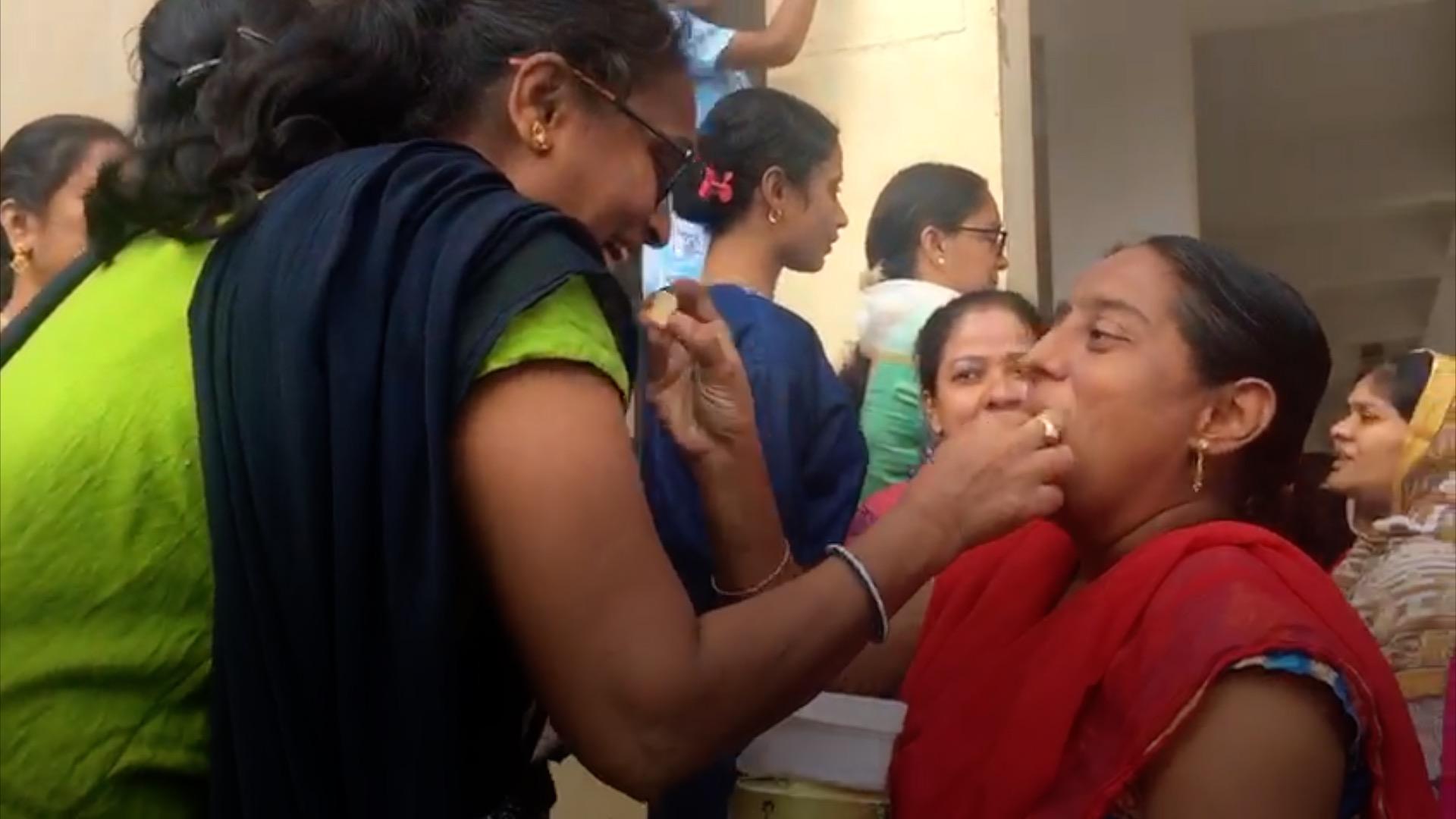
- Published20 March 2020
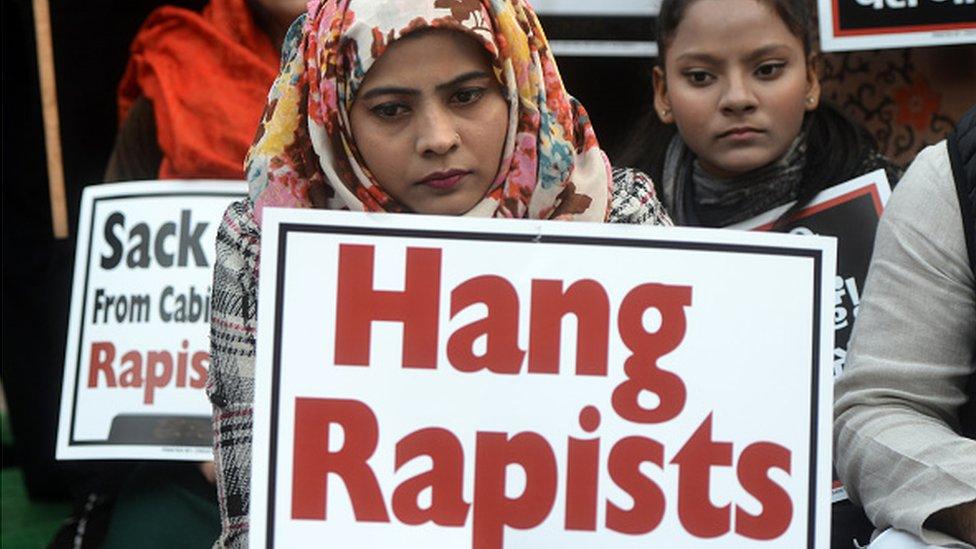
- Published16 December 2017
